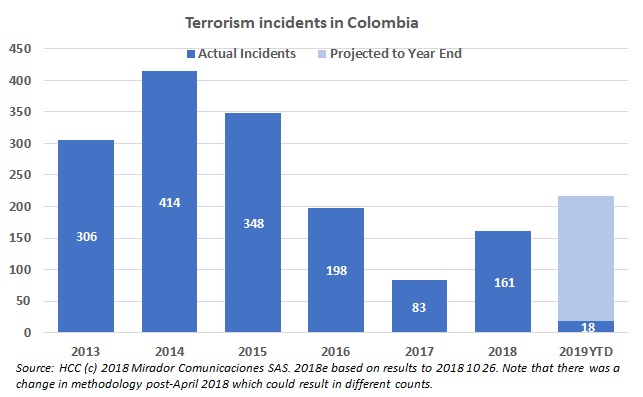Authorities reported the highest levels of oil theft back in 2001. This is what they did to bring the metric down significantly.
An anonymous reader sent me an email about our article on Venezuela from a week or so ago. He disagreed with the ACP’s conclusion that turmoil in Colombia’s neighbor was a big opportunity for our oil and gas sector. I concur with him.
President Duque insisted that the Cuban government should capture ELN members that are currently in Havana, but the international community thinks otherwise. Here are the details.
According to official reports from the neighboring country, the armed group controls illegal gold markets in Venezuela to help finance its ‘revolutionary cause.’

Our tracking of terrorism / security incidents has changed since the Farc disarmed in 2017, both in conceptual terms and methodological ones. Based on the latest data, the trend is not good.
General Luis Navarro spoke about the scope of the ELN across Colombia, and its implications for the country’s safety in rural and urban areas.
Fuel smuggling continues to be a major problem, but authorities spoke about successful operations throughout the country. The development of these and other stories in our periodic Security summary.
The ELN has been attacking oil infrastructure to put pressure on the government and reactivate peace talks. The Colombian Association of Petroleum Engineers (ACP) explains why the group’s actions will not affect industry investments.
The ELN attacked the TransAndino pipeline in Nariño, while Colombians took the streets of Bogotá and Medellin to demand peace. Here are the details.
President Duque announced the reactivation of capture orders against the ELN’s delegation, after the armed group claimed responsibility for attacking the Police Academy in Bogotá. How will this affect the Colombian economy?